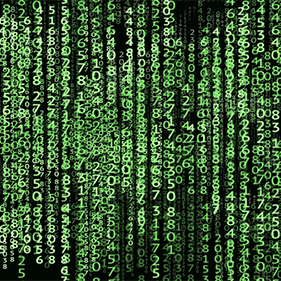The secret Jewish history of The Matrix

Queens College Hillel presented its very first Movie Night on Nov. 7 at the Hillel Ellen Koppelman Lounge, where participants discussed the Jewish interpretation of 1999 film The Matrix.
The discussion, led by Hillel’s Rabbi Sara Zacharia and senior media studies major Meira Lamm, was held after a group viewing of the film. The discussion drew parallels from the movie to Judaism, with some themes being obvious and others more subtle.
Directed by sisters Lana and Lilly Wachowski, The Matrix hit theaters in March 1999. The movie starred Keanu Reeves as the lead role “Neo,” Laurence Fishburne as his spiritual guide and sparring partner “Morpheus” and Carrie-Anne Moss as a computer hacker and Neo’s love interest.
The Matrix is a film about a dystopian society run by anthropomorphic machines who have enslaved humans by trapping them in a computer-simulation, for the sake of consuming their bioelectrical energy. The humans are, for the most part, unaware of their hypnosis, yet a select few have the special ability to distinguish reality from fantasy.
Thomas Anderson, a computer programmer who goes by the hacker name “Neo,” discovers the truth about his life and works to liberate the rest of his species.
During the discussion session following the movie, students observed that Morpheus’ hovercraft, the Nebuchadnezzar, is also a biblical reference to Nebuchadnezzar II, who is mentioned in the Book of Daniel.
Lamm recalled, “One of the most interesting connections someone made was the fact that Neo was the Moses of Judaism, and Morpheus was G-d.”
Nebuchadnezzar II was the Babylonian King of the Chaldean dynasty and is regarded as the most powerful king in Babylonian history. In Jewish history, he is known for destroying the Temple of Jerusalem and holding the Jewish population in captivity, just as the machines hold humans in captivity in the film.
The crew of the Nebuchadnezzar is trying to reach Zion, a refuge and the last human city.
Ilan Kogan, a junior psychology major, noted that a similar event had transpired in Jewish history: “The human race had been enslaved in the Matrix and had to be led out of slavery, much like the Jewish people in Egypt.”
Ultimately the characters make it to Zion, which is also the hill upon which the city of David was built, in what is known today as Israel. Zion is also a synonym of Jerusalem, the Holy Land.
Senior history major Elisheva Sternglass said that the protagonist reminded her of the prophesy Jewish Messiah, the savior of the Jewish nation: “When I was watching the film, I kept getting Messianic feels, like how someone is destined to swoop in and save everyone.”
Lamm agreed, adding that she was also reminded of someone: Moses, regarded as the most important prophet in Jewish history. “Both are tasked with leading their respective people through the hardships that they must endure at the hands of others.”
Rabbi Zacharia, or Rav Sara to her students, was inspired to host this event after a Hillel coffee date with a student. Over coffee, she and Lamm discovered that “…we both love film and then we discussed our favorites… we found we love The Matrix.” What followed was countless hours of prepping and spreading the word around about an event where the two could combine their passions – Judaic learning and movies!
Rabbi Zacharia said she learned a lot from the discussion, saying that her vision was to bring eager Jewish students together to extract Jewish contexts/metaphors from concepts that are not necessarily Jewish in theme.
“What I hope everyone went home with, is the feeling of Judaism in everything,” she said. “This movie is an example of how, sometimes, Judaism is right in front of us without us even realizing.”
Both women said they were gratified by how interested students were in pointing out similarities between their Jewish backgrounds and a movie that one wouldn’t be quick to label ‘Jewish.’
Zacharia and Lamm are currently working on the next event, which will be held sometime this spring. They are still browsing titles and are looking for recommendations. Ideas should be emailed to [email protected].
–Veronica Kordmany